Featured Image Source
Instructional Goals and Background:
This document based lesson (DBL) is intended for use in a middle school United States History class; however, it can be useful in any situation in which revolutions are being analyzed. The students that this lesson was created for have explored the American Revolution in depth.
The purpose of this DBL is for students to compare and contrast major revolutions in history with the goal of answering the following essential question.
Essential Question:
What causes revolution?
Historical Context:
Throughout history, people within societies have banded together in attempts to impact, change, or displace the context in which they live. A revolution is a forcible overthrow of a government, leader, or social order with the intent of replacing it with a new system. People choose to revolt for many different reasons, and the outcome of the revolution is dependent on many variables. No matter the successfulness of a revolution, these uprisings impact not just the society it is within, but often influence others, as well.
Assignment:
In this lesson, students will investigate five major revolutions. These revolutions are most noteworthy because of their lasting impacts on the world. Students will work with various sources to determine the causes of each case of revolution. Students will need to analyze these causes to decide what causes, if any, are shared among these revolutions. Each source is followed by a list of questions that may assist students in answering the essential question.
SWBAT close read / analyze primary sources to answer the essential question.
The American Revolution
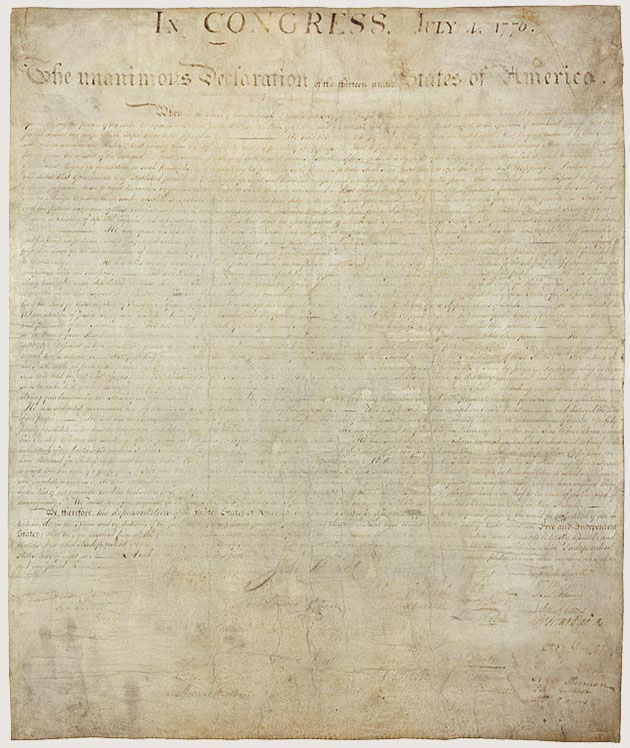
The Declaration of Independence was written by colonists during the Second Continental Congress. The intention of this document was to alert King George III to the colonies plan to become an independent nation and listed the reasons why they came to this decision.
The following is an excerpt from the Declaration of Independence. It is the list of grievances, or formal complaints, that the colonists had about King George III.
“He has refused his Assent to Laws, the most wholesome and necessary for the public good.
He has forbidden his Governors to pass Laws of immediate and pressing importance, unless suspended in their operation till his Assent should be obtained; and when so suspended, he has utterly neglected to attend to them.
He has refused to pass other Laws for the accommodation of large districts of people, unless those people would relinquish the right of Representation in the Legislature, a right inestimable to them and formidable to tyrants only.
He has called together legislative bodies at places unusual, uncomfortable, and distant from the depository of their public Records, for the sole purpose of fatiguing them into compliance with his measures.
He has dissolved Representative Houses repeatedly, for opposing with manly firmness his invasions on the rights of the people.
He has refused for a long time, after such dissolutions, to cause others to be elected; whereby the Legislative powers, incapable of Annihilation, have returned to the People at large for their exercise; the State remaining in the mean time exposed to all the dangers of invasion from without, and convulsions within.
He has endeavoured to prevent the population of these States; for that purpose obstructing the Laws for Naturalization of Foreigners; refusing to pass others to encourage their migrations hither, and raising the conditions of new Appropriations of Lands.
He has obstructed the Administration of Justice, by refusing his Assent to Laws for establishing Judiciary powers.
He has made Judges dependent on his Will alone, for the tenure of their offices, and the amount and payment of their salaries.
He has erected a multitude of New Offices, and sent hither swarms of Officers to harrass our people, and eat out their substance.
He has kept among us, in times of peace, Standing Armies without the Consent of our legislatures.
He has affected to render the Military independent of and superior to the Civil power.
He has combined with others to subject us to a jurisdiction foreign to our constitution, and unacknowledged by our laws; giving his Assent to their Acts of pretended Legislation:
For Quartering large bodies of armed troops among us:
For protecting them, by a mock Trial, from punishment for any Murders which they should commit on the Inhabitants of these States:
For cutting off our Trade with all parts of the world:
For imposing Taxes on us without our Consent:
For depriving us in many cases, of the benefits of Trial by Jury:
For transporting us beyond Seas to be tried for pretended offences
For abolishing the free System of English Laws in a neighbouring Province, establishing therein an Arbitrary government, and enlarging its Boundaries so as to render it at once an example and fit instrument for introducing the same absolute rule into these Colonies:
For taking away our Charters, abolishing our most valuable Laws, and altering fundamentally the Forms of our Governments:
For suspending our own Legislatures, and declaring themselves invested with power to legislate for us in all cases whatsoever.
He has abdicated Government here, by declaring us out of his Protection and waging War against us.
He has plundered our seas, ravaged our Coasts, burnt our towns, and destroyed the lives of our people.
He is at this time transporting large Armies of foreign Mercenaries to compleat the works of death, desolation and tyranny, already begun with circumstances of Cruelty & perfidy scarcely paralleled in the most barbarous ages, and totally unworthy the Head of a civilized nation.
He has constrained our fellow Citizens taken Captive on the high Seas to bear Arms against their Country, to become the executioners of their friends and Brethren, or to fall themselves by their Hands.
He has excited domestic insurrections amongst us, and has endeavored to bring on the inhabitants of our frontiers, the merciless Indian Savages, whose known rule of warfare, is an undistinguished destruction of all ages, sexes and conditions.” (Source)
Questions for Analysis:
01. What are the major reasons the colonists gave King George III for their wanting to claim independence?
02. What had the colonists done previously (before this document was written) to try to fix their problems?
03. What were the colonists hoping to achieve by revolting against the British?
The French Revolution
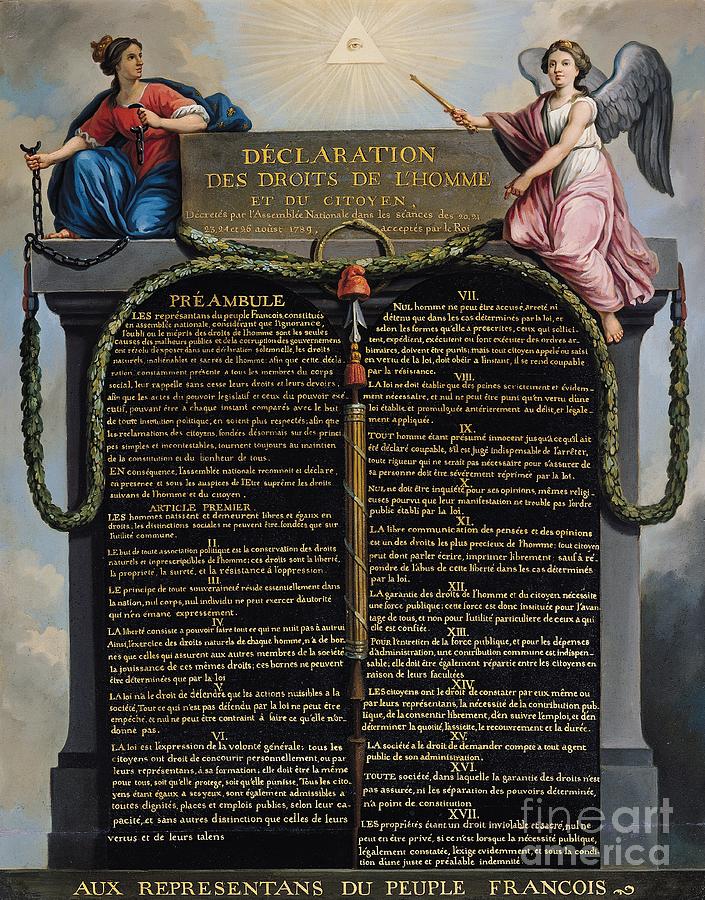
The following is an excerpt from the Declaration of the Rights of Man and the Citizen.
“The Representatives of the French people, organized in National Assembly, considering that ignorance, forgetfulness, or contempt of the rights of man are the sole causes of public miseries and the corruption of governments, have resolved to set forth in a solemn declaration the natural, inalienable, and sacred rights of man, so that this declaration, being ever present to all the members of the social body, may unceasingly remind them of their rights and duties; in order that the acts of the legislative power, and those of the executive power, may at each moment be compared with the aim and of every political institution and thereby may be more respected; and in order that the demands of the citizens, grounded henceforth upon simple and incontestable principles, may always take the direction of maintaining the constitution and welfare of all.” (Source)
Questions for Analysis:
01. What is the author’s purpose in writing this document?
02. How is the purpose of this Declaration similar to that of the Declaration of Independence?
03. What grievances does this author express?
The Haitian Revolution

The following is an excerpt from the Saint-Domingue Constitution of 1801.
“Art. 3. – There cannot exist slaves on this territory, servitude is therein forever abolished. All men are born, live and die free and French.
Art. 4. – All men, regardless of color, are eligible to all employment.
Art. 5. – There shall exist no distinction other than those based on virtue and talent, and other superiority afforded by law in the exercise of a public function.
The law is the same for all whether in punishment or in protection.” (Source)
Questions for Analysis:
01. What is unique about the Haitian revolution?
02. How is this revolution similar to the French and American revolutions?
03. Was the purpose of the Haitian revolution similar or different to the other revolutions you’ve learned about?
The Chinese Revolution
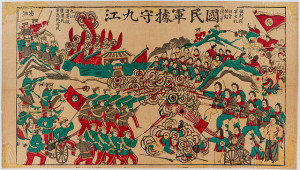
Students will read this article to learn a bit about the 1911 Revolution in China.
Questions for Analysis:
01. What caused the 1911 Chinese revolution? How are these causes similar or different to the causes of the other revolutions you know?
02. What did this revolution achieve?
The Russian Revolution
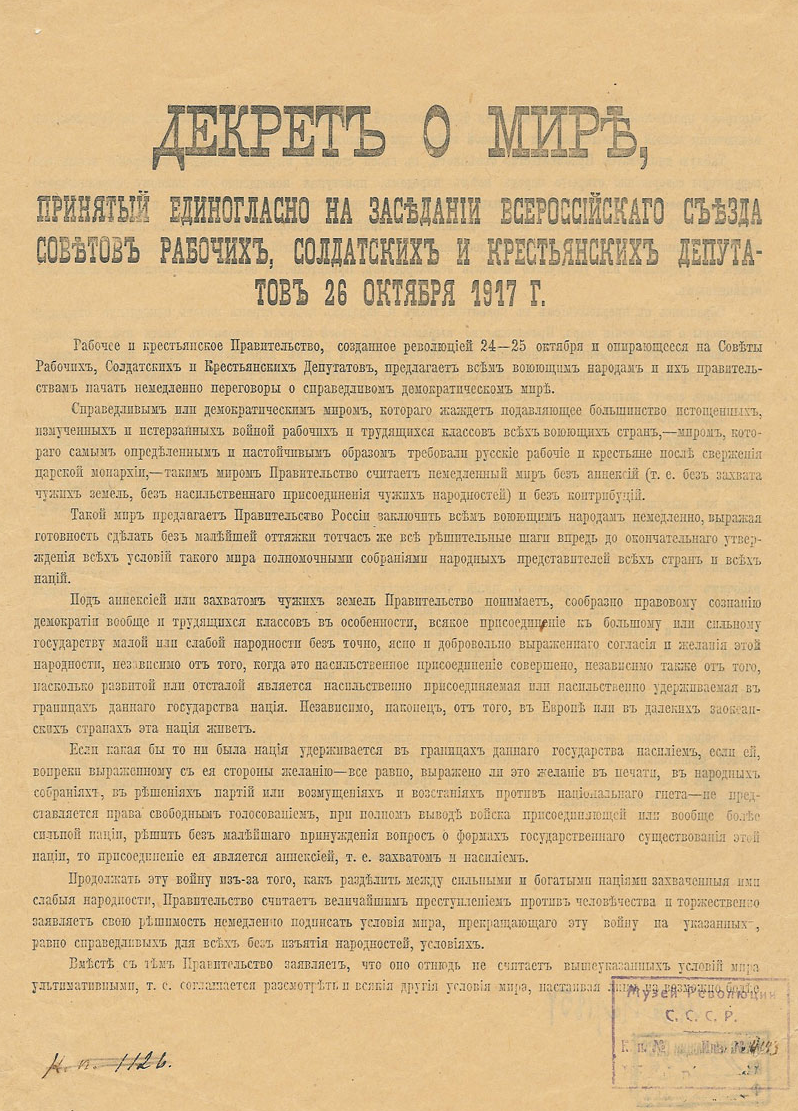
The following is an excerpt from The Decree on Peace (1917).
“The Workers’ and Peasants’ Government, created by the revolution of October 24-25, and drawing its strength from the Soviets of Workers’, Soldiers’, and Peasants’ Deputies, proposes to all warring peoples and their governments to begin at once negotiations leading to a just democratic peace. A just and democratic peace for which the great majority of wearied, tormented and war-exhausted toilers and labouring classes of all belligerent countries are thirsting, a peace which the Russian workers and peasants have so loudly and insistently demanded since the overthrow of the Tsar’s monarchy, such a peace the government considers to be an immediate peace without annexations (i.e., without the seizure of foreign territory and the forcible annexation of foreign nationalities) and without indemnities.” (Source)
Questions for Analysis:
01. Who does this text emphasize as the ones calling for change? How is this similar or different to the people who called for revolution in the other cases of revolution we have explored?

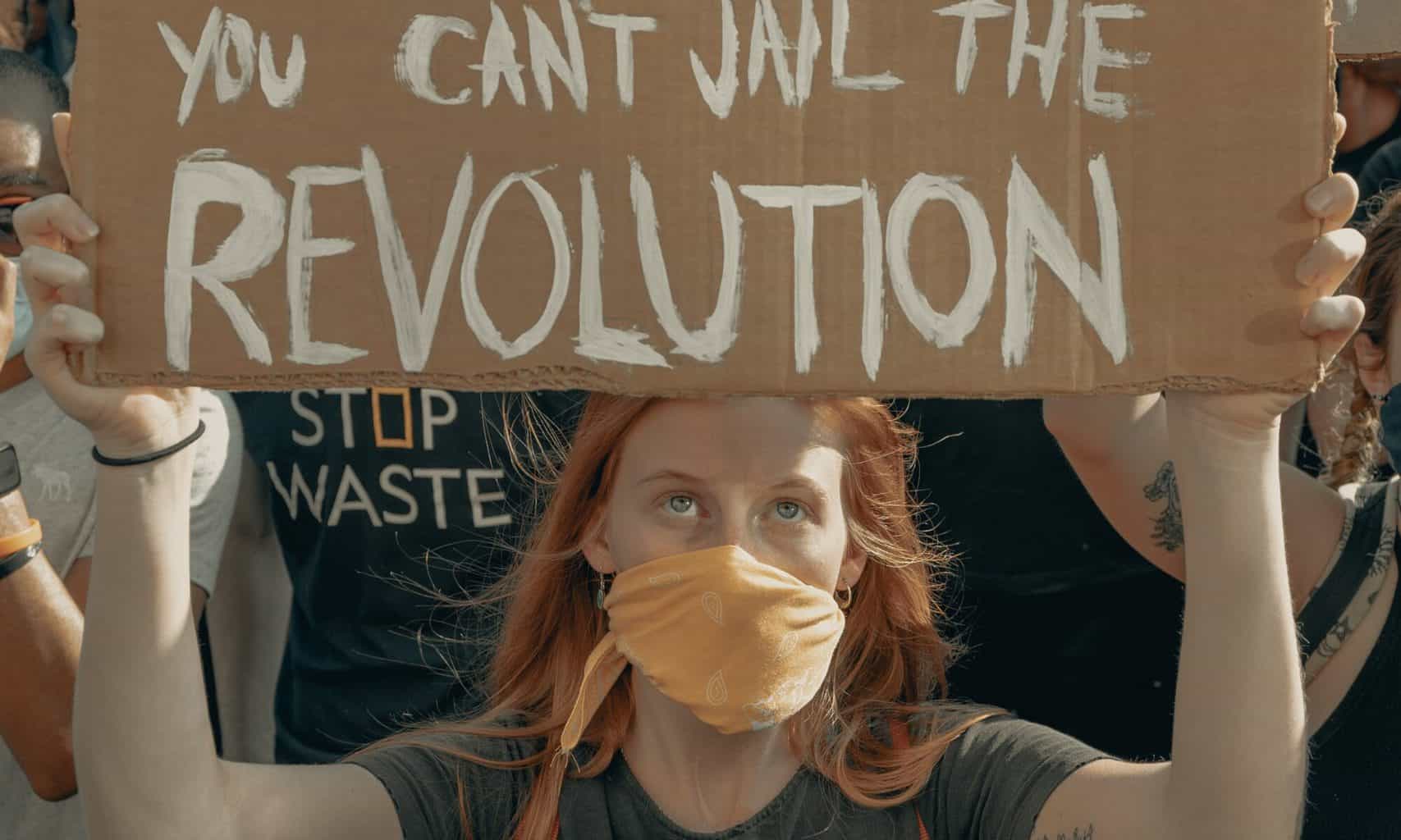
Madi, First off, I like the “Big History” approach here – taking a step back and asking student to look broadly at the roots of revolution.
Your selection of revolutions is equally expansive – stretching clear across the globe and examining a variety of impactful revolutions. Kudos for including the Haitian revolution. It triggered the Louisiana Purchase and for decades it fueled fears among southern slave owners. Sadly, it also resulted in even greater repression of American enslaved people.
The presentation of each revolution is handled in a parallel structure which assists students in looking for commonalities and contrasts. Your questions for analysis help student focus on the task and draw their own insights.
Overall – a well crafted lesson that should give students a well-grounded look at the nature and impacts of revolutions. PS. Like the featured image